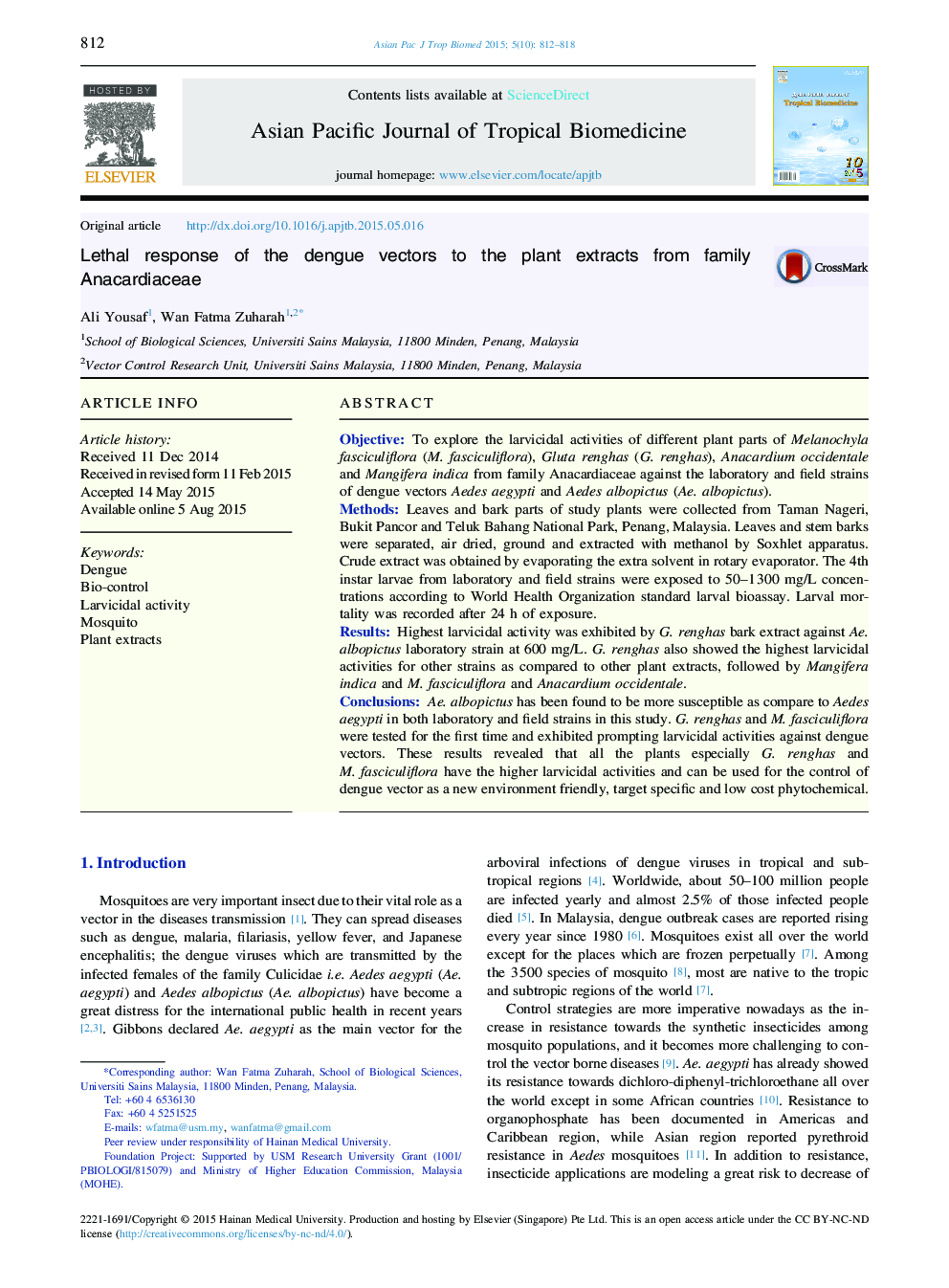| کد مقاله | کد نشریه | سال انتشار | مقاله انگلیسی | نسخه تمام متن |
|---|---|---|---|---|
| 2032309 | 1542872 | 2015 | 7 صفحه PDF | دانلود رایگان |

ObjectiveTo explore the larvicidal activities of different plant parts of Melanochyla fasciculiflora (M. fasciculiflora), Gluta renghas (G. renghas), Anacardium occidentale and Mangifera indica from family Anacardiaceae against the laboratory and field strains of dengue vectors Aedes aegypti and Aedes albopictus (Ae. albopictus).MethodsLeaves and bark parts of study plants were collected from Taman Nageri, Bukit Pancor and Teluk Bahang National Park, Penang, Malaysia. Leaves and stem barks were separated, air dried, ground and extracted with methanol by Soxhlet apparatus. Crude extract was obtained by evaporating the extra solvent in rotary evaporator. The 4th instar larvae from laboratory and field strains were exposed to 50–1 300 mg/L concentrations according to World Health Organization standard larval bioassay. Larval mortality was recorded after 24 h of exposure.ResultsHighest larvicidal activity was exhibited by G. renghas bark extract against Ae. albopictus laboratory strain at 600 mg/L. G. renghas also showed the highest larvicidal activities for other strains as compared to other plant extracts, followed by Mangifera indica and M. fasciculiflora and Anacardium occidentale.ConclusionsAe. albopictus has been found to be more susceptible as compare to Aedes aegypti in both laboratory and field strains in this study. G. renghas and M. fasciculiflora were tested for the first time and exhibited prompting larvicidal activities against dengue vectors. These results revealed that all the plants especially G. renghas and M. fasciculiflora have the higher larvicidal activities and can be used for the control of dengue vector as a new environment friendly, target specific and low cost phytochemical.
Journal: Asian Pacific Journal of Tropical Biomedicine - Volume 5, Issue 10, October 2015, Pages 812–818